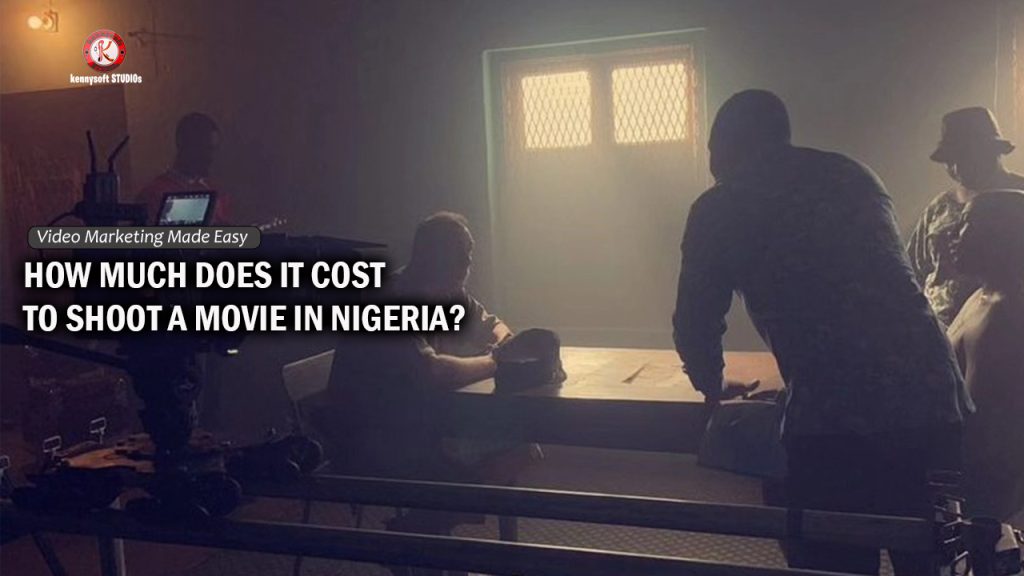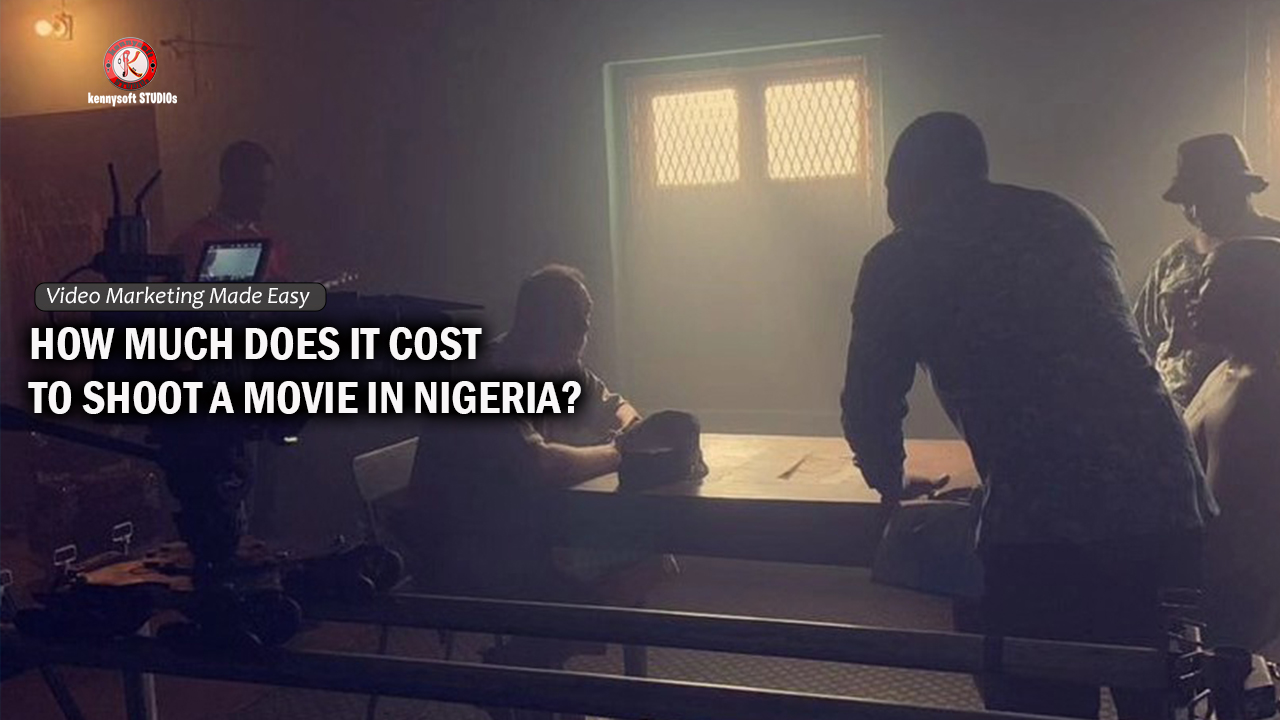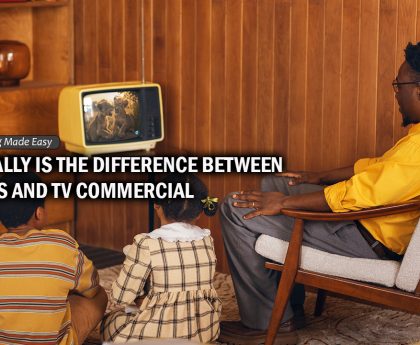
When it comes to movie production, one of the questions producers usually ask is “How much does it cost to shoot a movie in Nigeria?” This is a great question because the cost of producing a movie varies greatly from one country to another. Depending on the type of production, the budget can vary significantly. It is important for filmmakers to research and be aware of the typical costs associated with movie making in Nigeria before they embark on a project.
Nigeria’s film industry, popularly known as Nollywood, is one of the largest in the world. This means that the cost of producing movies in the country can vary significantly, Although Nigeria does not yet have a production-wide budgeting system for film-making, expenses still need to be taken into account.
To help young filmmakers we created this article to help them examine the costs of shooting a movie in Nigeria and offer tips to help potential filmmakers plan their budgets accordingly.
Just so you know the cost of making a movie in Nigeria can vary significantly depending on the scope and type of project. A straightforward low-budget feature film, for instance, will generally cost around N500,000 ($1,430 USD) for shooting and editing.
This figure does not include the cost of hiring a cast and crew, renting equipment, or licensing music. A mid-budget feature film, on the other hand, can cost between N2,500,000 ($7,100) and N10,000,000 ($28,400). With a budget of N4,000,000 ($11,400), one can produce a high-budget feature film with quality visuals, effects, and an impressive cast.
So, here is a breakdown of some of the major costs associated with producing a movie in Nigeria.
The pre-production phase of film production is the first step in the filmmaking process which generally cost around 10-20% of the total budget and typically involves a variety of tasks such as scouting locations, hiring cast and crew, and budgeting.
Cost To Shoot A Movie In Nigeria
In the Nigerian film industry, pre-production costs usually include the following:
• Script fees: Many filmmakers choose to hire writers for the purpose of writing the script for their movie. This cost will vary depending on the length and complexity of the script as well as the experience of the writer.
• Location Costs: The cost of shooting a movie in Nigeria depends heavily on the location. Some locations are more expensive than others. Locations such as Lagos, Abuja, and Port Harcourt are particularly expensive due to their high demand. If a production requires locations outside of these main cities, there are other locations available at lower costs. Additionally, if a production plans to shoot outside of Nigeria, the cost of travel and lodging must be factored into the budget.
• Crew: The crew is another major expense. Having an experienced and competent crew is essential to having a good quality movie. You will need to pay the crew members for their services, as well as provide them with food and transportation. Depending on the size of your crew and the complexity of the movie, this can cost anywhere from a few thousand to hundreds of thousands of naira.
• Equipment costs: Filmmakers need to acquire cameras, lights, sound equipment, and other tools of the trade in order to properly create their film. Equipment costs can range from a few hundred naira to tens of thousands of naira.
Still on equipment and rental next thought is your best option when you think of producing a film in Nigeria, the company literally have all the equipment’s needed to produce a film in Nigeria.
• Insurance costs: In order to protect themselves and their production, filmmakers should purchase insurance. This cost will vary depending on the type and amount of coverage required. Production Costs When the movie goes into production, there are several costs associated with the actual filming process.
These include: • Camera rental costs: Rental fees for cameras and camera equipment can range from a few hundred dollars to tens of thousands of dollars. The cost of cameras can vary greatly depending on the size and complexity of the camera as well as the length of the rental.
• Film processing costs: In order to properly record and develop the film for editing, filmmakers need to send their film to a laboratory for processing. Processing costs can vary depending on the length of the film and the type of processing needed.
• Lighting costs: Lighting is an integral part of any film set. The cost of lighting can vary greatly depending on the size and complexity of the lighting setup.
• Transportation costs: During the production process, filmmakers may need to transport equipment and crew members. This cost will vary depending on the location, number of crew members, and type of equipment being transported. Post-production costs
The post-production phase of film production is just as important as the filming phase and this generally cost about 25-35% of the total budget and there may also be additional costs associated with marketing, advertising, and distributing the movie once it is finished.
The post-production phase involves tasks such as editing, color correction, sound mixing, and special effects. The most common post-production costs are as follows:
• Editing costs: Editing involves assembling the footage shot during production into a cohesive story. This task is usually completed by a professional editor and can cost thousands of dollars depending on the length and complexity of the movie.
• Color correction: During the post-production process, filmmakers may need to use color correction to adjust the color balance of their film. This process can be completed using software and typically costs a few hundred dollars.
• Sound mixing: A professional sound mixer is typically hired to mix the sound recorded during production. This can cost hundreds of dollars or more depending on the length and complexity of the movie.
• Special effects: Special effects are often used in film to create a certain look or atmosphere. The cost of creating these effects can vary greatly depending on the type and complexity of the effects needed.
• Music and sound effects: Music and sound effects are used to enhance the overall atmosphere and story of the film. The cost of licensing music and sound effects can range from a few hundred dollars to several thousand dollars depending on the complexity and length of the film. Advertising and Distribution Costs In order for a movie to be successful, filmmakers must engage in advertising and distribution, which can involve costs such as:
• Advertising costs: Advertising can help promote the film and build awareness for its release. Advertising costs can range from a few hundred to several thousand dollars depending on the type and complexity of the ad campaign.
• Distribution costs: Filmmakers must also cover distribution costs in order to get the movie into theaters and for sale on video platforms. These costs can range from a few hundred dollars to several thousand dollars depending on the number of platforms the movie will be released on.
• Promotion costs: Promotion costs can include things like posters, flyers, and other materials used to promote the movie. These costs can vary depending on the type and quantity of promotional materials needed. In conclusion Producing a movie in Nigeria is a complex and costly process, and filmmakers must consider all of the costs associated with pre-production, production, post-production, advertising and distribution. As discussed above, these costs can vary greatly depending on the type and complexity of the film, and it is important for filmmakers to properly budget for each phase of the production in order to ensure a successful movie release.
How To Cut Costs When Making A Movie in Nigeria? Although making a movie in Nigeria can be expensive, there are several ways to keep production costs down. Here are some tips to help you save money when making a movie in Nigeria.
• Choose the right cast & crew: Choosing the right cast and crew for your project can be the key to a successful and cost-effective production. Hiring experienced and qualified professionals can significantly reduce the costs associated with mistakes or delays in production.
• Negotiate: Negotiating with vendors and talent can help you save on costs. Try to get discounts, deals, or favors wherever you can.
• Utilize resources: The Nigerian film industry is full of resources and opportunities that can help you keep your budget low. Look for free or low-cost filming locations, props, equipment, and other resources.
• Reuse & Recycle: Where possible, try to reuse and recycle resources whenever you can. For example, if you’ve made use of a prop in an earlier film, you may be able to use it again for future projects without having to purchase or rent a new one.
Conclusion: The cost of producing a movie in Nigeria can vary greatly, depending on the size and scope of the production. It is important for filmmakers to do their research and be aware of typical costs associated with movie making in Nigeria before they embark on a project. By understanding these costs and planning ahead, filmmakers can help ensure that their production is successful and runs on budget, additionally Shooting a movie in Nigeria can be a fun, rewarding, and cost-effective experience for filmmakers.






